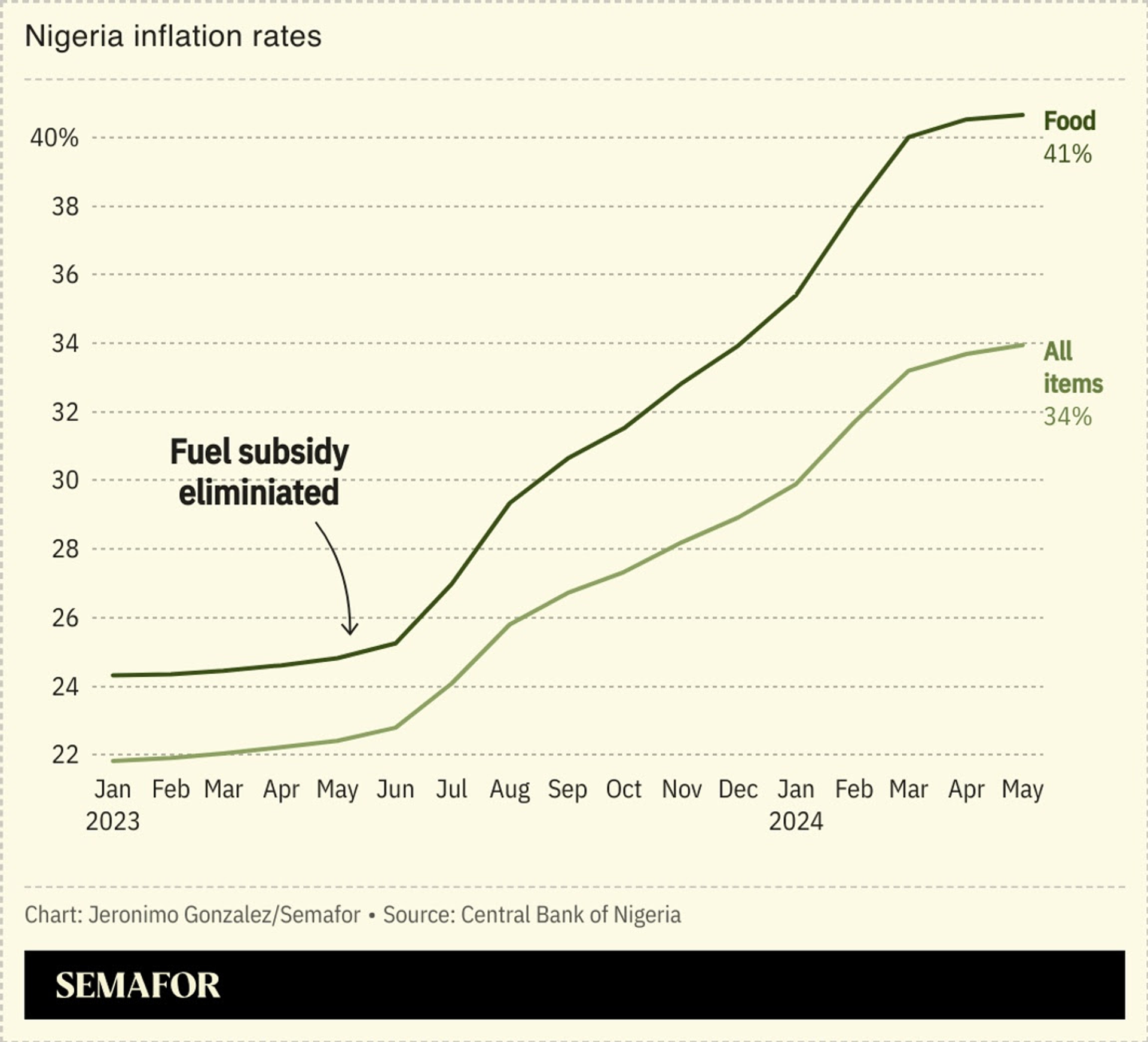The News
Nigerians began a planned 10-day protest Thursday which they had vowed would bring “days of rage.”
In the northern city of Kano, police reportedly fired tear gas and live bullets in an effort to disperse thousands of protesters who were chanting “We are hungry.” At least seven people were reported dead as a result of clashes.
Banks and businesses were closed in different cities in anticipation of the demonstrations.
The protests are fueled by widespread discontent as Nigeria endures its worst economic crisis in a generation, caused in part by the removal of a fuel subsidy on which much of the economy relied. The shift triggered a wave of inflation that has sent food prices soaring.
The Nigerian police chief warned that authorities would quell the demonstrations, but many protesters remained undeterred by threats of repression. “We are down already, so we have lost our fear,” one told the BBC.
SIGNALS
President’s policies created a deep socio-economic crisis
After taking office in 2023, President Bola Tinubu vowed to remodel the country’s economy, implementing measures like scrapping a decades-old fuel subsidy and eliminating the local currency’s peg to the US dollar in an attempt to boost foreign investment. But his policies resulted in the country’s highest inflation in 30 years and a sharp devaluation of the Naira, creating a deep socio-economic crisis. Food prices can double or even triple in the same day, France 24 noted, exacerbating poverty levels and forcing many Nigerians to eat whatever food they can find. “We are protesting because we are hungry,” one activist told the BBC.

‘Oil curse’ making things worse
As one of Africa’s biggest exporters of oil, Nigeria’s economy relies heavily on it. But oil has been a blessing and a curse: The country has struggled to expand other sectors like manufacturing and agriculture, while the economy was buoyed up by oil revenues, The Economist wrote. Nigeria has also largely lacked the capacity to refine oil, meaning it had to export, then re-import it refined at often higher prices, the Financial Times reported. Africa’s richest man Aliko Dengote is now working on a giant refinery project that aims to meet all of Nigeria’s fuel needs, Semafor’s Alexander Onukwue wrote, but is facing major regulatory scrutiny.
Young Africans organize against common frustrations
The protests in Nigeria are shaping up to be like the violent protests that recently gripped Kenya. They are part of a larger wave of youth-driven mobilization across Africa, fueled by growing anti-government sentiments and the use of social media as an organizing tool. It could serve as “a wake up call” to African governments, a Nairobi-based researcher told Semafor. “Governments need to move with speed and address the grievances of the people” if they want to avoid further uprisings.

